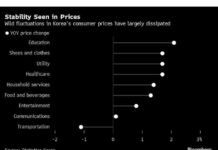General Motors, a leading car manufacturer known for its brands such as Chevrolet, Cadillac, and Buick, is facing allegations of selling driver data to insurers without their consent. The state of Texas has filed a lawsuit against the company, claiming that General Motors installed technology on over 14 million vehicles to collect data on drivers’ habits. This data was then allegedly sold to insurers and other companies to create “driving scores” to determine whether drivers engaged in “bad” habits such as fast driving, abrupt braking, sharp turns, not using seatbelts, and driving late at night.
The data-collecting technology was reportedly integrated into most GM vehicles starting with the 2015 model year through the company’s OnStar diagnostics system. While the lawsuit does not explicitly state whether this data was used to increase insurance premiums for drivers, the implications of such actions on privacy and insurance costs are concerning.
Texas attorney general Ken Paxton has voiced his concerns over the invasive nature of this data collection, stating that companies are using technology to violate the privacy rights of citizens in unprecedented ways. He emphasized the need to hold General Motors accountable for their alleged business practices that violate privacy laws.
The lawsuit seeks the destruction of improperly collected data, compensation for affected drivers, a civil fine, and other remedies to address the alleged violations. General Motors has not yet responded to requests for comment on the matter, leaving many questions unanswered regarding the extent of data collection and its impact on drivers.
Subheadings:
The Allegations Against General Motors
Implications on Privacy and Insurance Costs
Legal Ramifications and Accountability Measures
The Allegations Against General Motors
The accusations against General Motors paint a troubling picture of the extent to which car manufacturers may be collecting and selling driver data without their knowledge or consent. With technology becoming increasingly integrated into vehicles for various purposes, the potential misuse of this data raises significant privacy concerns for consumers.
The lawsuit filed by the state of Texas sheds light on the alleged practices of General Motors, claiming that the company utilized technology in millions of vehicles to monitor drivers’ behaviors on the road. By collecting data on driving habits such as speed, braking patterns, seatbelt usage, and time of day, General Motors purportedly created “driving scores” to assess whether drivers exhibited risky behaviors.
The data collection, carried out through the OnStar diagnostics system, raises questions about the level of intrusion into drivers’ privacy and the ethical implications of selling this information to third parties like insurers. While the lawsuit does not explicitly state how this data was used to determine insurance premiums, the mere fact that such information was collected and shared without drivers’ consent is cause for concern.
Implications on Privacy and Insurance Costs
The allegations against General Motors have broader implications on privacy rights and insurance costs for drivers across the country. The idea that a car manufacturer could be monitoring and selling data on individuals’ driving habits without their consent raises serious questions about the extent of privacy invasion in the era of connected vehicles.
From a privacy standpoint, the collection of data on driving behaviors opens the door to potential misuse and surveillance of individuals without their knowledge. If companies like General Motors are able to track and analyze how people drive, it raises concerns about the level of control and oversight they have over consumers’ personal information.
Furthermore, the impact on insurance costs is a significant factor to consider in light of these allegations. If insurers are using data collected from vehicles to assess risk and set premiums based on driving habits, it could lead to discriminatory practices that penalize certain drivers unfairly. This could result in higher insurance costs for individuals who are deemed to engage in “bad” driving behaviors, as determined by the data collected by General Motors.
Legal Ramifications and Accountability Measures
The lawsuit filed against General Motors by the state of Texas highlights the need for legal accountability and measures to address the alleged violations of privacy rights. Companies that engage in the collection and sale of data without consent must be held responsible for their actions and face consequences for any breaches of privacy laws.
In this case, the lawsuit seeks to remedy the situation by calling for the destruction of improperly collected data, compensation for affected drivers, a civil fine, and other measures to ensure that General Motors is held accountable for its alleged business practices. By pursuing legal action against the company, the state of Texas aims to send a clear message that privacy violations will not be tolerated.
Moving forward, it is crucial for regulators and lawmakers to establish clear guidelines and regulations regarding the collection and use of data in connected vehicles. Transparency, consent, and data protection must be prioritized to safeguard the privacy rights of individuals and prevent companies from exploiting personal information for financial gain.
In Conclusion
The allegations against General Motors regarding the sale of driver data to insurers underscore the complex challenges posed by the increasing integration of technology in vehicles. As cars become more connected and data-driven, the need to protect consumer privacy and ensure fair practices in the insurance industry is paramount.
The lawsuit filed by the state of Texas against General Motors represents a significant step in holding companies accountable for their actions and safeguarding the privacy rights of drivers. By addressing the alleged violations of privacy laws and seeking remedies for affected individuals, regulators can send a strong message that data collection without consent will not be tolerated.
As the case unfolds and more details emerge, it is essential for stakeholders to consider the broader implications of data collection in connected vehicles and work towards establishing a framework that balances innovation with privacy protection. Only through collaborative efforts between industry, regulators, and consumers can we ensure that personal data is handled responsibly and ethically in the digital age.






















